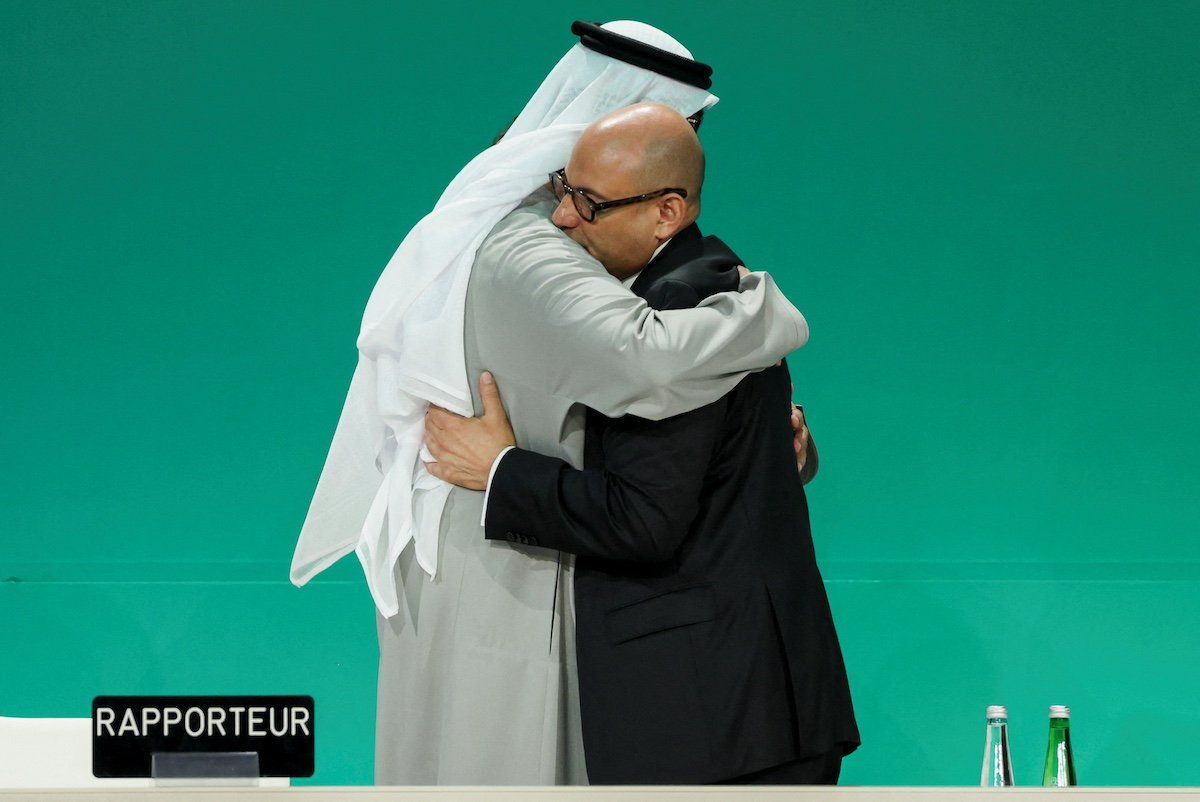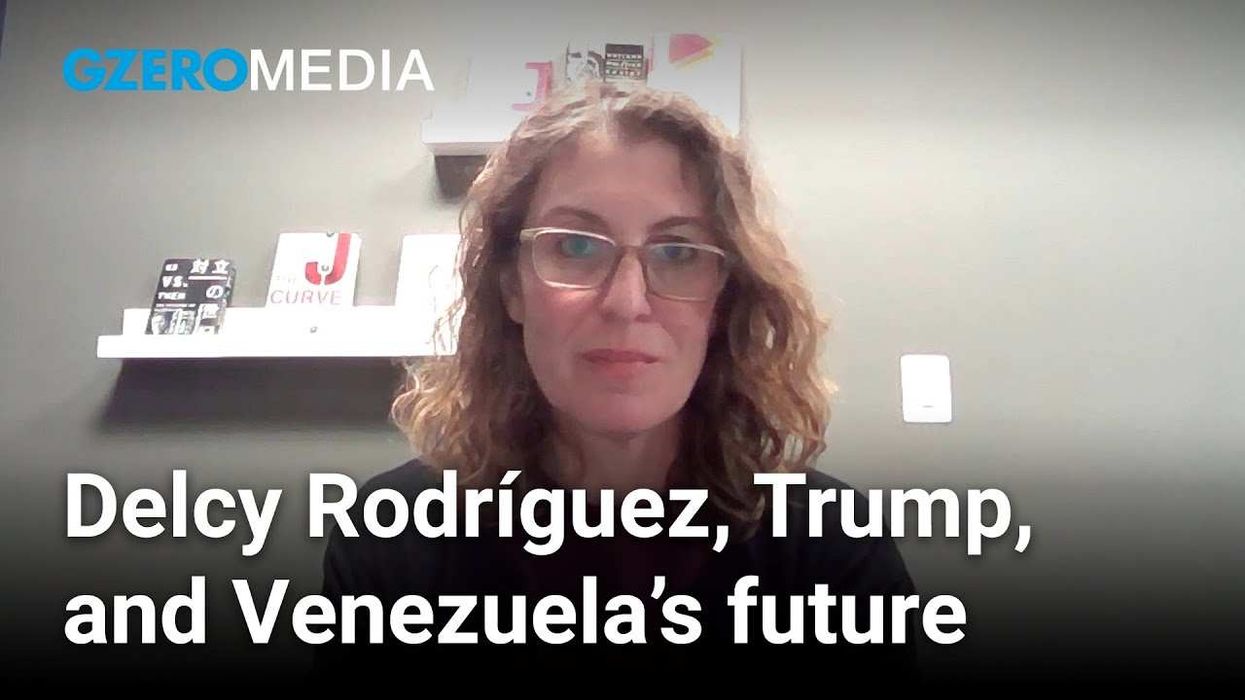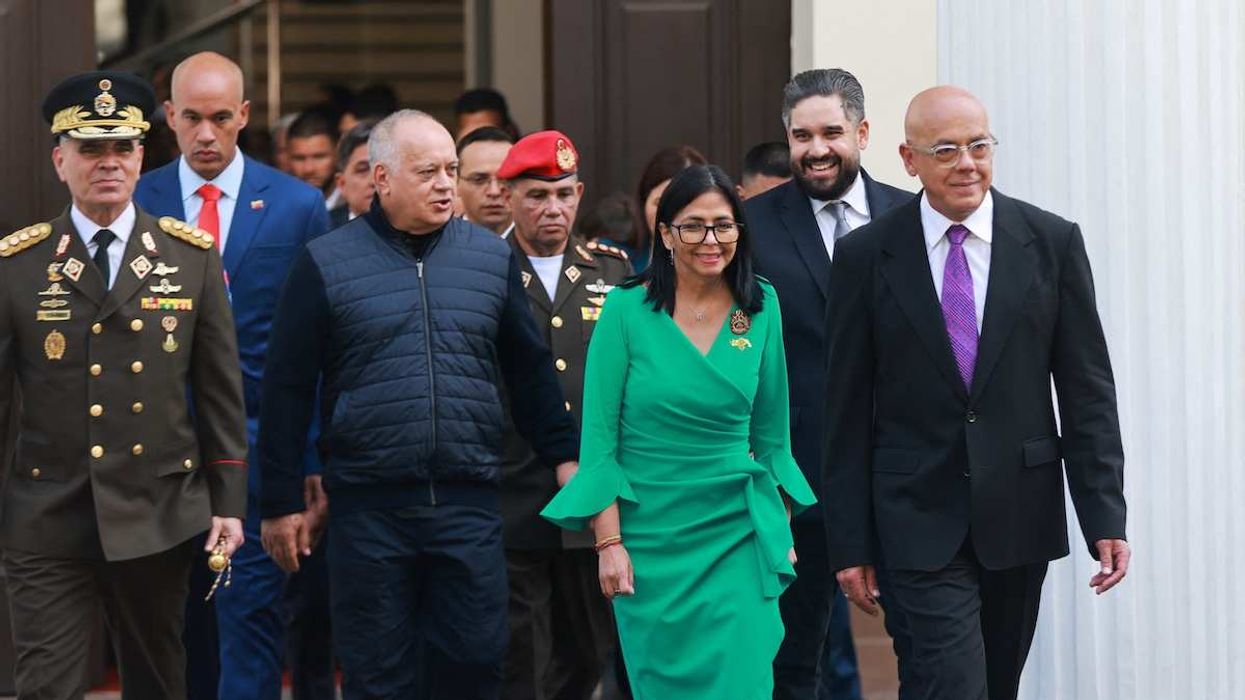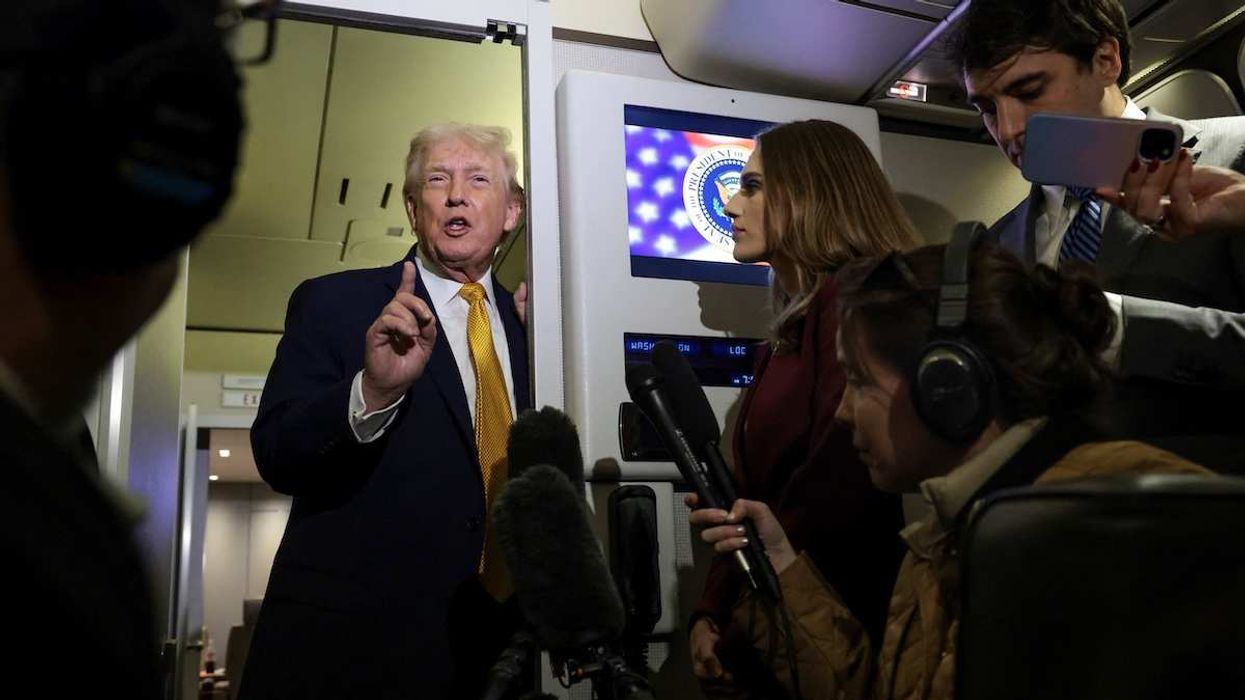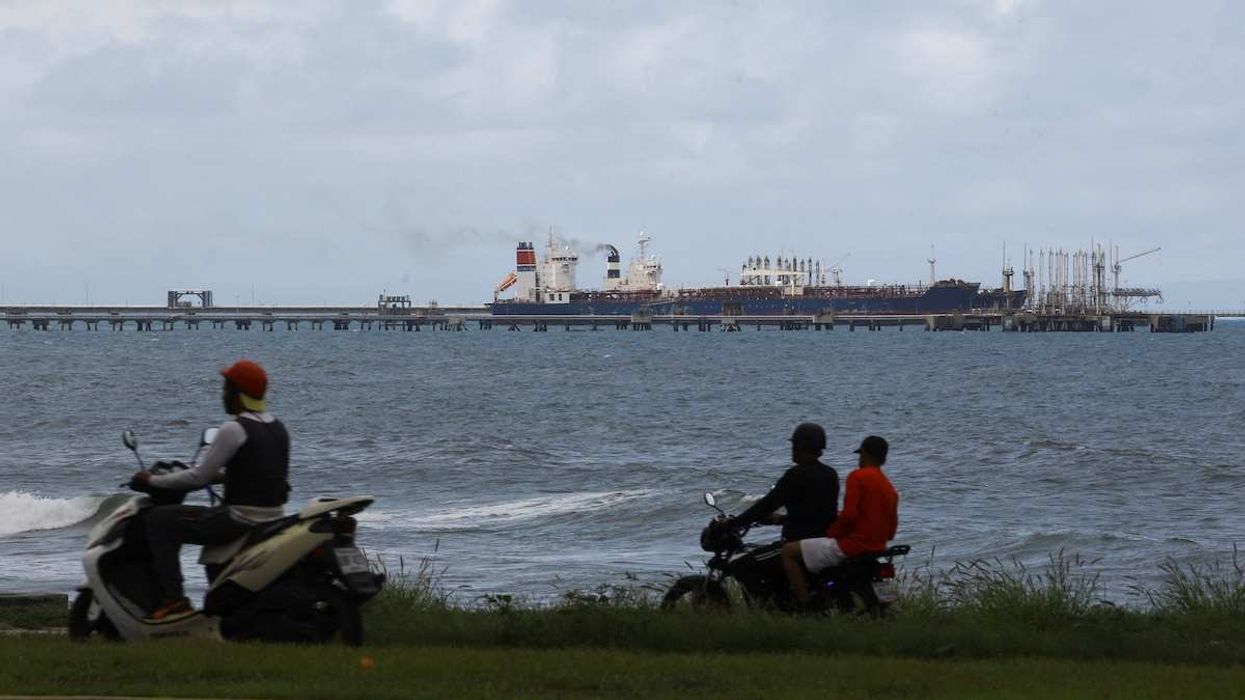Negotiators at the UN’s largest climate conference agreed for the first time to commit the world to transition away from fossil fuels. It is a major accomplishment but falls short of the fossil fuel “phase out” more than 100 countries had been pushing for after the hottest year on record.
The deal calls for “transitioning away from fossil fuels in energy systems, in a just, orderly and equitable manner, accelerating action in this critical decade” but does not set clear timelines or enforceable caps. A similar commitment around coal produced at the conference in Paris two years ago has not led to a decline in coal consumption.
Nonetheless, leaders celebrated the achievement, with US Climate Envoy John Kerry saying he was “in awe of the spirit of cooperation” that led to the agreement, after the conference’s fairly rocky start. Just days before the conference, leaked documents suggested its presiding officer — and oil magnate — Sultan al-Jaber was using the conference to cut oil deals.
Not everyone was pleased, though, particularly leaders of small island states who say they don’t have time to spare for voluntary commitments and gradual change. Anne Rasmussen of Samoa’s delegation said “the course correction that is needed has not been secured. We have made an incremental advancement over business as usual, when what we really need is an exponential step change in our actions."
